Mental Training

How can mental training improve physical abilities in athletes ?
Mental training is crucial for athletes as it enhances physical abilities by improving focus, managing stress, and promoting a positive mindset. Techniques such as visualization, self-talk, and emotional intelligence contribute to better performance.
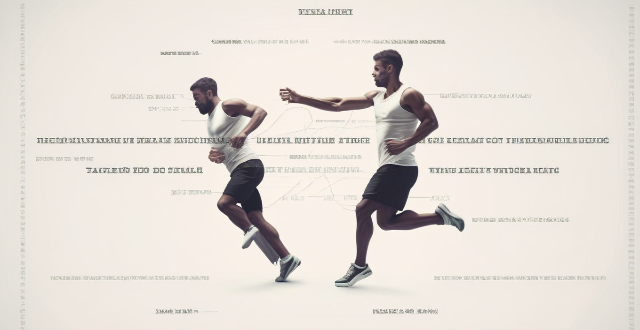
What role does mental training play in improving sports skills ?
The text discusses the role of mental training in enhancing sports skills. It outlines key points including mental toughness, visualization techniques, goal setting, self-talk, and concentration skills. Mental toughness helps athletes handle pressure, recover from setbacks, and persist through challenges. Visualization techniques can program the subconscious, reduce anxiety, and increase motivation. Goal setting clarifies objectives, tracks progress, and maintains motivation. Positive self-talk boosts confidence, enhances performance, and regulates emotions. Concentration skills block distractions, maintain attention, and improve decision making. The conclusion states that mental training is an essential component of overall athletic success.

What are the benefits of including mental health and stress management in personal safety training programs ?
Incorporating mental health and stress management into personal safety training programs can improve physical health, enhance mental well-being, boost work performance, increase job satisfaction, and reduce costs for organizations. By managing stress levels, individuals can achieve better sleep quality, reduced anxiety and depression, increased resilience, improved relationships, and enhanced career development. Organizations can benefit from lower healthcare expenses and decreased turnover rates by promoting a positive work environment through mental health and stress management training.

Is high-intensity interval training (HIIT) more effective for mental health than steady-state cardio ?
This article explores whether high-intensity interval training (HIIT) is more effective for mental health than steady-state cardio. HIIT involves short bursts of intense activity followed by periods of rest or low-intensity activity, while steady-state cardio involves maintaining a consistent level of activity for an extended period. Both types of exercise offer benefits for mental health, such as improved mood, reduced anxiety and stress, increased self-efficacy, relaxation, and social opportunities. However, they may appeal to different individuals based on their preferences and goals. Incorporating both types of exercise into a regular routine can provide the most comprehensive benefits for mental health.

How can virtual reality be incorporated into sports training and performance enhancement ?
Virtual reality is revolutionizing sports training and performance enhancement by offering a safe, controlled environment for skill development, tactical analysis, mental preparation, rehabilitation, and team building. Athletes can practice skills in realistic simulations, receive immediate feedback, repeat movements without fatigue, visualize game plans, engage in interactive scenarios, analyze opponents, develop mindfulness techniques, visualize success, manage distractions, manage pain during rehabilitation, recover motor functions, receive mental health support, foster camaraderie through shared experiences, enhance communication through role playing, and promote mutual respect among diverse players. As virtual reality technology advances, it will become an integral part of future sports training programs.

Are there specific exercises that help improve mental health ?
Exercises like yoga, meditation, aerobic exercise, resistance training, MBSR, and Tai Chi can help improve mental health by reducing stress, anxiety, and depression symptoms while promoting relaxation, self-awareness, and social interaction.

What is the balance between specialized training and cross-training for optimal sports performance ?
In the realm of sports performance, achieving a balance between specialized training and cross-training is crucial for athletes to reach their peak potential. Specialized training focuses on improving skills, techniques, and strategies specific to an athlete's chosen sport, while cross-training involves engaging in other forms of exercise or activities that complement and enhance overall fitness and athleticism. This article explores the importance of finding the right balance between these two approaches and how it can lead to optimal sports performance. Specialized training helps athletes develop sport-specific skills, fitness, and mental preparation, while cross-training promotes injury prevention, overall fitness, and mental health. Achieving the right balance depends on various factors such as an athlete's goals, age, experience level, and individual needs. Tips for finding the right balance include assessing goals, consulting with professionals, monitoring your body, incorporating variety, and staying motivated. By finding the right balance between specialized training and cross-training, athletes can optimize their sports performance while minimizing the risk of injury and maintaining overall health and well-being.

What are the best exercises for improving mental health ?
Engaging in regular physical activities is crucial for maintaining good mental health. Some of the best exercises for improving mental health include cardiovascular exercises like running, cycling, and swimming; strength training exercises like weightlifting, resistance bands, and bodyweight exercises; and yoga and meditation practices like Hatha yoga, mindfulness meditation, and Tai Chi. By incorporating these exercises into your routine, you can reduce stress and anxiety levels while also improving overall well-being.
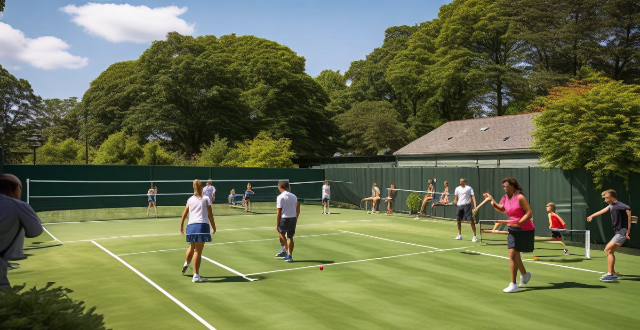
How do I know if a tennis training camp offers quality coaching ?
When considering enrollment in a tennis training camp, it is crucial to assess the quality of coaching by examining credentials and experience of coaches, coach-to-player ratios, training methods and philosophy, reputation and reviews, facilities and support services, and personalized attention and feedback.
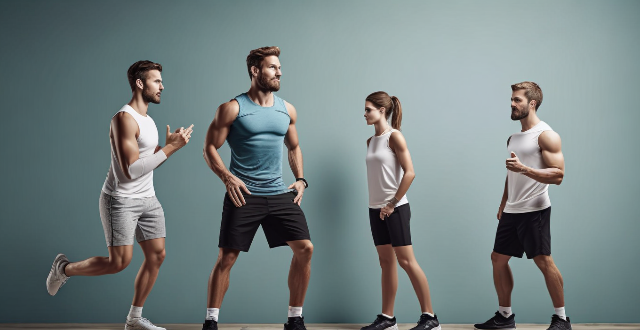
How can mental toughness be developed in athletes through sports psychology ?
The article discusses the importance of mental toughness in sports and how sports psychology can help athletes develop this quality. It outlines six ways that sports psychologists can assist athletes in developing mental toughness, including goal setting, self-talk, visualization techniques, stress management, mindfulness practices, and team building activities. These strategies can enhance resilience, focus, and motivation in athletes, leading to success in their chosen sport.

What is the daily schedule like at a typical tennis training camp ?
A tennis training camp's daily schedule focuses on skill enhancement, fitness, and mental preparation through activities like morning practice, theory sessions, match play, and fitness training. The day starts early with wake-up calls around 6:00 AM and ends with an early bedtime to ensure rest for the next day's intensive training. Leisure activities are included to promote relaxation and social interaction among participants.
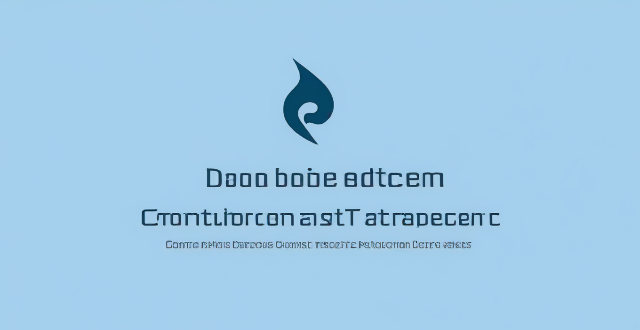
What benefits do sports-specific training programs offer ?
Sports-specific training programs offer several benefits, including improved performance, increased physical fitness, enhanced mental toughness, better recovery and injury prevention, and personalized coaching and support. These programs focus on developing the skills, techniques, and physical abilities required for success in a particular sport, helping athletes reach their full potential while also improving their overall health and well-being.

How do I manage stress while training for a marathon ?
Managing stress is crucial during marathon training. Tips include setting realistic goals, following a structured plan, prioritizing recovery, staying hydrated and nourished, getting enough sleep, practicing mindfulness, seeking support, managing time wisely, and embracing the process. These strategies help minimize stress and make the training journey more enjoyable.
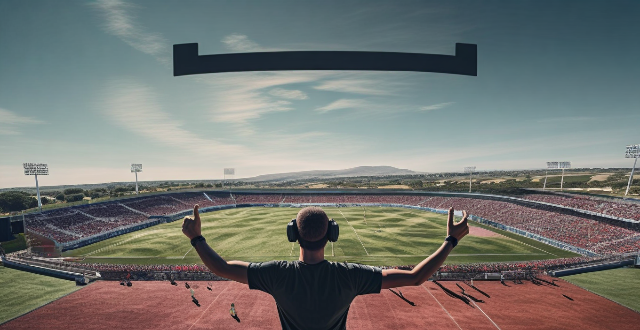
How can virtual reality be used in sports training ?
The article discusses the potential applications of virtual reality (VR) in sports training, including mental rehearsal, skill development, physical training, and team building. VR can simulate game scenarios, provide immediate feedback on technique, create realistic environments for practicing skills, and facilitate collaborative training. It also offers a distraction-free environment for injury recovery and an engaging workout experience. The technology is expected to play an increasingly important role in enhancing athletic performance across various sports.

What are the risks associated with excessive exercise and how can they be managed ?
Overtraining can lead to a range of health problems and injuries such as overuse injuries, cardiovascular problems, immune system suppression, reproductive system issues, and mental health issues. To manage these risks, athletes should prioritize proper rest and recovery, gradually progress their training, maintain good nutrition and hydration, get regular medical check-ups, be aware of their mental health, and listen to their body's signals. By implementing these strategies, athletes can minimize the risks associated with excessive exercise and maintain their physical and mental well-being.

What are the best training methods for a marathon ?
The article provides a summary of the best training methods for a marathon, including long runs, interval training, hill training, tempo runs, cross-training, recovery weeks, race pace workouts, and tapering. It emphasizes the importance of consistency, patience, and listening to one's body during training.

How do sports competitions influence stress levels and mental readiness ?
Sports competitions can significantly impact stress levels and mental readiness. Performance pressure, fear of failure, winning obsession, and physical exertion can increase stress levels, while confidence building, goal achievement, camaraderie, and mindfulness practices can decrease them. Similarly, focus and concentration, resilience, mental toughness, and visualization techniques can improve mental readiness, while overthinking, perfectionism, lack of self-belief, and external factors can impair it. Overall, sports competitions provide opportunities for growth, learning, and personal development but also present challenges that require effective coping strategies to manage stress levels and maintain mental readiness.
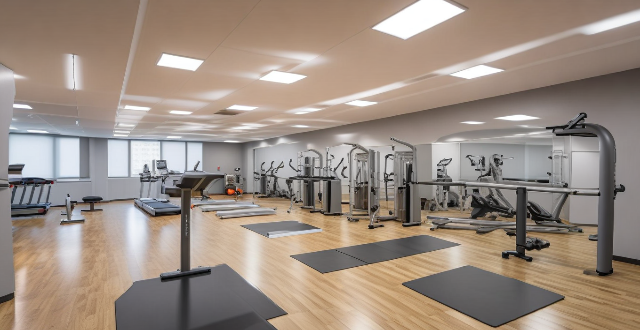
How do sports psychologists assist coaches in understanding and managing their athletes' mental health ?
Sports psychologists assist coaches in managing athletes' mental health by providing education, individual assessments, mental skills training, counseling, team building activities, crisis intervention, and feedback. This support helps coaches create a supportive environment for athletes to perform at their best mentally and physically.

How can we address the stigma surrounding mental health in women ?
Summary: Addressing the stigma surrounding mental health in women requires a comprehensive approach involving education, awareness, and advocacy. Public education campaigns can help demystify mental health, while school programs can teach young girls that it's okay to seek help. Corporate training and media representation can also play a role in changing public perception. Support groups, mental health advocates, government policies, and employer policies can provide support and resources for women struggling with mental health issues. By working together, we can create a society where women feel comfortable discussing their mental health and seeking help without fear of judgment or discrimination.

What strategies can coaches use to foster resilience and mental toughness in their athletes ?
Strategies for Coaches to Foster Resilience and Mental Toughness in Athletes: Emphasize the Importance of Mindset: Encourage positive self-talk, visualization techniques, and goal setting. Build a Supportive Environment: Create an open communication environment, promote teamwork, and provide constructive feedback. Teach Coping Mechanisms: Introduce stress management techniques, problem-solving skills, and time management strategies. Incorporate Adversity Training: Simulate pressure situations, discuss overcoming setbacks, and incorporate physical challenges. Lead by Example: Model resilience, share personal experiences, and show a commitment to continuous learning.
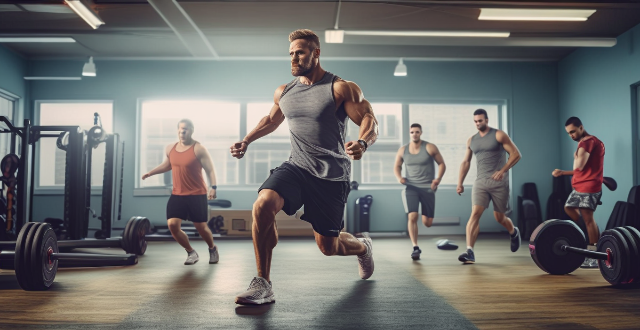
What are the key elements of a successful sports training program ?
A successful sports training program is essential for athletes to improve performance and achieve goals. Key elements include clear objectives, comprehensive planning, variety and progression in workouts, proper technique and form, recovery and regeneration strategies, mental toughness and focus, nutrition and hydration, and continuous assessment and adjustment. By incorporating these elements, athletes can maximize potential and minimize risk of injury and burnout.

How do I measure progress in my sports training plan ?
Measuring progress is crucial for athletes to track development and adjust their training plans. Set SMART goals, track performance, evaluate technique, monitor body composition, assess fitness level, and reflect on mental state to measure progress effectively.

What is the role of cross-training in marathon preparation ?
Cross-training is a vital component of marathon preparation that involves incorporating different forms of exercise into your training routine to improve overall fitness, prevent injuries, and enhance performance. The benefits of cross-training include improved cardiovascular fitness, reduced risk of injuries, enhanced muscle balance and flexibility, and a mental break from running. Some types of cross-training activities include cycling, swimming, yoga/Pilates, and strength training. Incorporating these activities into your training routine can help you achieve your marathon goals.
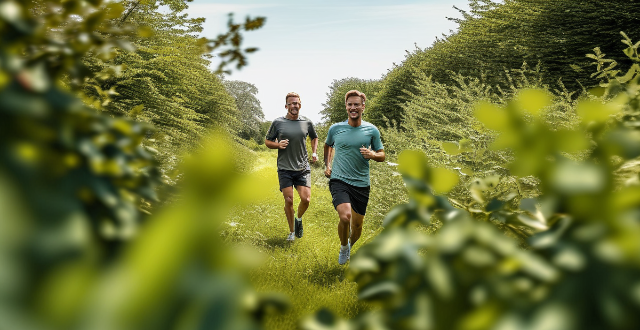
How important is mental health in managing a sports career ?
This article discusses the importance of mental health in managing a sports career. It explains how mental health affects an athlete's performance, recovery, team dynamics, off-field success, and personal growth. The article emphasizes that athletes with good mental health are more likely to set goals, work hard towards achieving them, and push through challenges. It also highlights the role of mental health in developing life skills that extend beyond an athlete's sports career. Overall, the article underscores the significance of prioritizing mental well-being for athletes to maximize their potential both as individuals and members of their teams.

What is the importance of recovery in sports training ?
Recovery is a crucial aspect of sports training that often gets overlooked. Athletes and coaches need to understand the importance of recovery and make it an integral part of their training programs. Recovery refers to the process of restoring the body's energy reserves and repairing damaged tissues after physical activity. It is essential for athletes because it allows them to prevent overtraining, promote tissue repair and growth, and enhance mental well-being. There are several effective recovery strategies that athletes can incorporate into their training programs, including active recovery, passive recovery, hydration and nutrition, and sleep. By incorporating these strategies into their training programs, athletes can maximize their recovery benefits and improve their performance on the field or court.

What are the latest advancements in sports science ?
The text discusses the latest advancements in sports science, including wearable technology, nutritional science, biomechanics, and mental training. Wearable technology provides real-time data on an athlete's performance, while nutritional science focuses on specialized diets and supplements. Biomechanics studies human movement to improve form and reduce injuries, while mental training techniques help build confidence and manage stress. These advancements have revolutionized athletic performance across all levels of competition.

Can rigorous training compensate for natural talent in achieving high-level sports performance ?
In sports, the debate between natural talent and hard work continues. While some argue that raw talent is key to success, others believe rigorous training can overcome any lack of innate ability. The reality is that both factors play a significant role in achieving high-level sports performance. Natural talent often manifests itself in physical attributes such as strength, speed, agility, and endurance, giving athletes an advantage in certain sports. Mental acuity also plays a crucial role in athletic performance, with quick reflexes, strategic thinking, and calmness under pressure being important traits. However, rigorous training cannot be overlooked when it comes to achieving high-level sports performance. Through consistent practice and dedication, athletes can develop and refine their skills, making up for any deficiencies in natural talent. Rigorous training also improves an athlete's physical conditioning and mental toughness, essential for overcoming challenges and setbacks throughout their career. To maximize potential, coaches and trainers should adopt personalized approaches based on each athlete's unique strengths and weaknesses. This might involve focusing more heavily on skill development for those with less natural talent or emphasizing mental toughness training for athletes who already possess impressive physical attributes. By tailoring training programs to individual needs, athletes can make the most of their natural talents while simultaneously addressing areas where they may be lacking. Achieving high-level sports performance requires a commitment to continuous improvement. Whether an athlete relies more heavily on natural talent or rigorous training, there is always room for growth and development. By embracing this mindset and striving for excellence in all aspects of their game, athletes can push themselves to reach new heights and achieve success beyond what they may have initially thought possible.

What are the key factors that contribute to high-level sports performance ?
High-level sports performance is determined by a combination of physical prowess, mental strength, tactical acumen, and favorable environmental conditions. Physical factors include strength and conditioning, flexibility and mobility, nutrition and hydration, and rest and recovery. Psychological factors encompass mindset and motivation, confidence and self-belief, mental toughness, and concentration and focus. Tactical factors involve technical skill, game intelligence, adaptability, and teamwork and communication. Environmental factors include training facilities, coaching staff, and support personnel. By addressing each of these factors through dedicated training and support systems, athletes can reach their full potential and achieve excellence in their chosen sport.
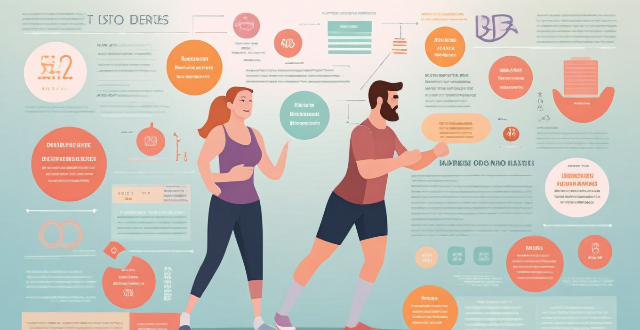
What are the benefits of strength training for overall health ?
Strength training offers numerous benefits for overall health, includingStrength training offers numerous benefits for overall health, includingurance, increased bone density Incorporating strength training into your fitness routine can help you achieve a healthier, stronger, and happier life.

How can sports leadership training programs benefit coaches and athletes ?
Sports leadership training programs can greatly benefit coaches and athletes by enhancing their skills and knowledge, leading to improved performance on and off the field. Coaches can improve communication, leadership qualities, motivation techniques, goal setting, and tactical knowledge, while athletes can develop self-confidence, teamwork skills, responsibility, time management, and mental toughness.